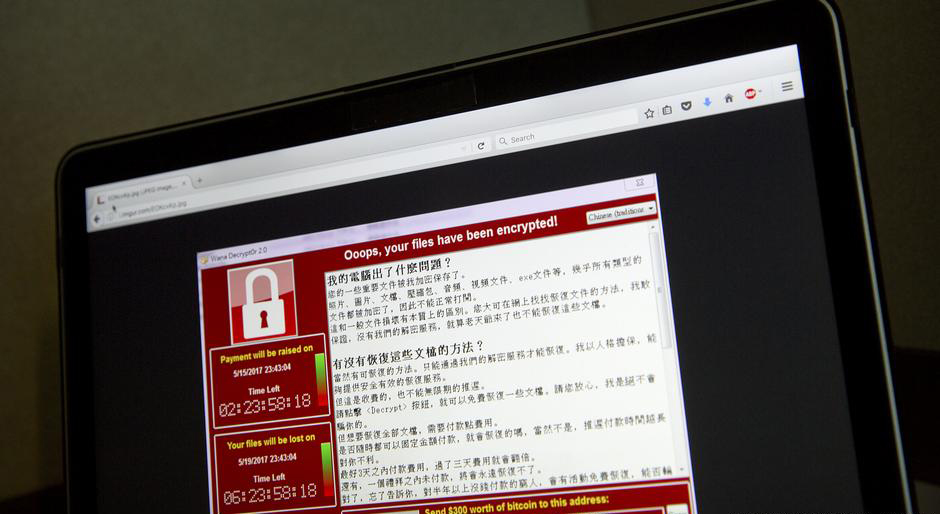You don’t have to be a digital whizz kid to know that the wars of the future are likely to be fought somewhere in cyberspace. The threat from cyber attacks has grown rapidly—and corporate Europe is urging action.
The digital revolution has made techies of millions of people around the world, hooked up and logged on to an overarching superstructure practically all the time, DW reported.
For all the benefits it has brought, it has come with costs and few have more profound consequences than the growing risk of serious cyber attacks. Everything from critical infrastructure, such as power plants, electricity grids and public transit systems, to software and IT systems, be they corporate, governmental or personal, are in the firing line.
Few can be in much doubt anymore that the threat is real. Last year's massive "WannaCry” ransomware attack affected over a quarter of a million computers in 150 countries and continued the trend, starkly evident over the last decade, that cyber attacks are on a sharp rise.
The threat posed is seen as so severe that it is estimated by the World Economic Forum that it could cost as much as $8 trillion in damage over the next few years alone. Even graver risks than the financial cost, such as those posed to national security and public health and safety, also loom large.
World on the Brink
On Friday at a major security conference taking place in Munich, several corporations already invested in fighting cyber attacks signed up to a charter that urges a string of collective intergovernmental, corporate and societal actions aimed at safeguarding digital systems of all kinds.
Siemens, Allianz, Airbus, IBM, Daimler, Deutsche Telekom, NXP and SGS are the eight companies signing up to the charter, which lists 10 principles they see as essential for "establishing a new charter of trust between society, politics, business partners, and customers.”
"Failure to protect the systems that control our homes, hospitals, factories, grids and virtually all of our infrastructure could have devastating consequences," runs a statement from the signatories. "Democratic and economic values need to be protected from cyber and hybrid threats," the signatories said.
The charter urges several specific measures, for example the routine establishment of governmental ministries tasked specifically with cyber security, a comprehensive education drive aimed at improving base level knowledge of issues around cyber security and a range of security-based measures aimed at fending off increasingly sophisticated attacks.
The corporations insist that in order for the full benefits of digitalization to be felt—a process currently blowing powerful winds of change through several industries—people need to have full faith in the new technological systems they are expected to place their trust in. "Digitalization and cyber security must evolve hand in hand," the statement says.
Online Robbery
The collective move by the companies can be seen in the context of the increasing urgency with which the corporate and political world is treating the issue of cyber security.
Cyber attacks vary in form. There are straight up "stand and deliver” style online robbery attempts such as WannaCry, which demanded that users whose systems were beset by a damaging virus wire ransom money via Bitcoin.
Cyber attacks on power plants have become increasingly common, with the energy sector having sustained more than any other industry, according to a Siemens report on the issue. In theory, a sufficiently sophisticated cyber attack, for example by nation-state players acting on behalf of a hostile government, could disable an entire national power grid.
Going by the so-called "charter of trust" being promoted in Munich, there are solutions that can significantly limit the risk posed by cyber attacks.
Given that many cyber attacks, even those targeting highly secured software networks, start with attempts to deceive workers into letting a system's defenses down, constant education and training around the ever-evolving area of cyber security is seen as essential.
With the rapid trends towards "Internet of Things" (IoT) technologies across several sectors, the need to adequately upgrade varying forms of equipment to the highest levels of security and technical sophistication possible is expensive. A US Department of Energy report in 2017 put the cost of adequately updating the US power grid to such standards at close to $500 billion.


